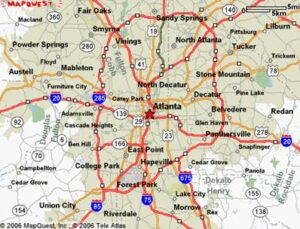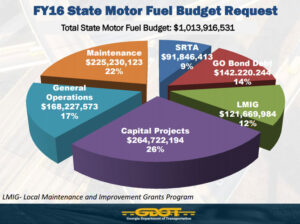 This week my family found ourselves a single car family. I do recognize that there are many families who exist every day as single car families and the struggles we faced this week are just another part of their normal lives. However, that aside, we still felt quite clever for figuring out how to get everyone everywhere they needed to be this week. See, we hatched a plan for our family to get up Wednesday morning, pack everyone into the car to drive my husband to work, then drive our one working car back home to do all of the things. (And yes, it did take us two days to figure this out, and you can giggle at us since this work flow is probably the most common solution for single car families). There is, however, a small difficulty with this brilliantly simple plan. See, we live in Gwinnett County…my husband is currently working at a client site in Vinings.
This week my family found ourselves a single car family. I do recognize that there are many families who exist every day as single car families and the struggles we faced this week are just another part of their normal lives. However, that aside, we still felt quite clever for figuring out how to get everyone everywhere they needed to be this week. See, we hatched a plan for our family to get up Wednesday morning, pack everyone into the car to drive my husband to work, then drive our one working car back home to do all of the things. (And yes, it did take us two days to figure this out, and you can giggle at us since this work flow is probably the most common solution for single car families). There is, however, a small difficulty with this brilliantly simple plan. See, we live in Gwinnett County…my husband is currently working at a client site in Vinings.
There are now three types of people reading this post:
- People who don’t live or work in the metro-Atlanta area, and are unfamiliar with the way Atlanta interstates are laid out. They read that sentence and are thinking, “So what?”
- People who don’t live or work in the metro-Atlanta area, but they know how Atlanta interstates are laid out (or they looked at a map). They read that sentence and are thinking, “That seems like a pretty direct shot.”
- People who live and work in the metro-Atlanta area. They read that sentence and are thinking, “Doh, y’all are screwed!”
The day came for us to implement our brilliant plan, so we left the house early (to “beat” rush hour), because we know that we’ll be riding with the traffic going in. Thankfully, our traffic sensing GPS directs us to the “fastest” route. Now, looking at the map, you’d think that route would be down I-85 and across I-285, but those of us in the metro know that’s just not the case. The GPS predictably sent us on the route with 6 bonus miles! This took us down I-85, all the way in to the top of the connector, and back up I-75 to I-285. More importantly, we had to repeat the “bonus mileage” journey to return home “against” traffic.
 For those keeping score, this is what our morning looked like:
For those keeping score, this is what our morning looked like:
- We left the house at 6:30am
- Total trip mileage should have been a little over 70 miles
- Average interstate speed limit is in the 60 mph range
- We just made it back to my eldest child’s first event…and it started at 9:30.
That’s nearly three hours for a roughly 70 mile journey with half of it being a “reverse commute.” Keep in mind that this was just our experience with morning rush hour (fortunately, my husband had a coworker bring him home that evening). Having to execute the roundtrip commute only served to shine a light on the quality of life issue that we face every day in the metro Atlanta area. The reality of an hour and a half commute for a thirty mile trip means that parents miss t-ball games and swim meets. It means that families don’t get to sit down to a meal at a kitchen table as a unit, or if they do, their children have to wait until 7pm or 8pm to eat. It also means that we’re losing three hours of productivity a day, productivity that could make our businesses more successful or our lives fuller.
The only people I’ve ever found who can identify with this madness are those who have lived in Los Angeles, but here in Atlanta we seem to accept this as a frustrating way of life. I hear lots of clamoring for more lanes on the interstates, new roads to divert thru traffic away from Atlanta, and other such suggestions. Those things have to happen, but realistically, they are not enough. We have that bill from this session that starts to address maintenance, now can we please talk about congestion relief?
P.S. – If you want to be a part of that conversation, come on out to the Wild Wing Café in Suwanee tonight at 7pm…the Gwinnett Young Republicans will be “Drinking and (Talking About) Driving”



